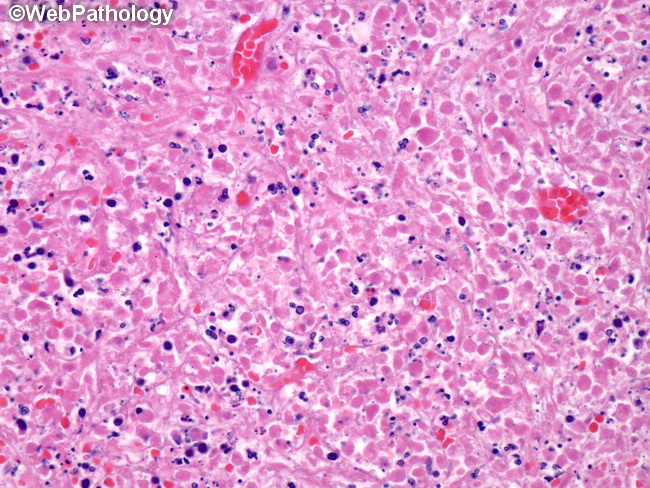Lymphomatoid Granulomatosis : Treatment


Comments:
Treatment of Lymphomatoid Granulomatosis (LG): LG is a progressive disorder with poor prognosis. The median survival is less than 2 years. In the absence of appropriate management, it can lead to progressive pulmonary failure, CNS involvement, or evolution into EBV-positive diffuse large B-cell lymphoma. Grades 1 and 2 are polyclonal processes and considered low-grade. They are treated with immunomodulating therapies such as interferon-alpha. Some low-grade lesions regress spontaneously. Grade 3 lesions monoclonal and high-grade. They behave like diffuse large B-cell lymphoma and require combination of immunotherapy and aggressive chemotherapy. Some cases respond to rituximab (a chimeric (mouse/human) monoclonal antibody against CD20 that triggers cell death when it binds to this protein). Patients with low-grade lesions may relapse with high-grade disease (and vice versa) after apparently successful chemotherapy. It is therefore important to have low threshold to rebiopsy patients who progress despite therapy. The image shows areas of parenchymal necrosis frequently seen in high-grade lesions of LG. There is karyorrhectic debris but no neutrophils (unlike the necrotizing lesions of Wegener's granulomatosis).



